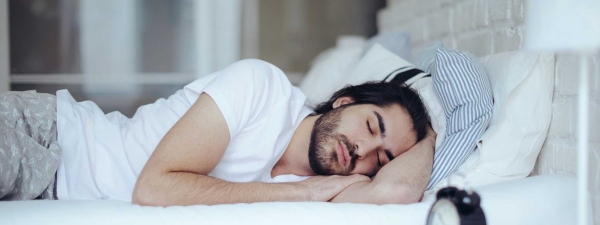
Courtesy of Northwestern University
Edited by Lawndale Bilingual News
Close the blinds, draw the curtains and turn off all the lights before bed. Exposure to even moderate ambient lighting during nighttime sleep, compared to sleeping in a dimly lit room, harms your cardiovascular function during sleep and increases your insulin resistance the following morning, reports a new Northwestern Medicine study. “The results from this study demonstrate that just a single night of exposure to moderate room lighting during sleep can impair glucose and cardiovascular regulation, which are risk factors for heart disease, diabetes and metabolic syndrome,” said senior study author Dr. Phyllis Zee, chief of sleep medicine at Northwestern University Feinberg School of Medicine and a Northwestern Medicine physician. “It’s important for people to avoid or minimize the amount of light exposure during sleep.” There is already evidence that light exposure during daytime increases heart rate via activation of the sympathetic nervous system, which kicks your heart into high gear and heightens alertness to meet the challenges of the day.
Heart rate increases in light room, and body can’t rest properly
“We showed your heart rate increases when you sleep in a moderately lit room,” said Dr. Daniela Grimaldi, a co-first author and research assistant professor of neurology at Northwestern. “Even though you are asleep, your autonomic nervous system is activated. That’s bad. Usually, your heart rate together with other cardiovascular parameters are lower at night and higher during the day.” There are sympathetic and parasympathetic nervous systems to regulate our physiology during the day and night. Sympathetic takes charge during the day and parasympathetic is supposed to at night, when it conveys restoration to the entire body.
How nighttime light during sleep can lead to diabetes and obesity
Investigators found insulin resistance occurred the morning after people slept in a light room. Insulin resistance is when cells in your muscles, fat and liver don’t respond well to insulin and can’t use glucose from your blood for energy. To make up for it, your pancreas makes more insulin. Over time, your blood sugar goes up. An earlier study published in JAMA Internal Medicine looked at a large population of healthy people who had exposure to light during sleep. They were more overweight and obese, Zee said.
Zee’s top tips for reducing light during sleep
• Don’t turn lights on. If you need to have a light on (which older adults may want for safety), make it a dim light that is closer to the floor.
• Color is important. Amber or a red/orange light is less stimulating for the brain. Don’t use white or blue light and keep it far away from the sleeping person.
• Blackout shades or eye masks are good if you can’t control the outdoor light. Move your bed so the outdoor light isn’t shining on your face.








